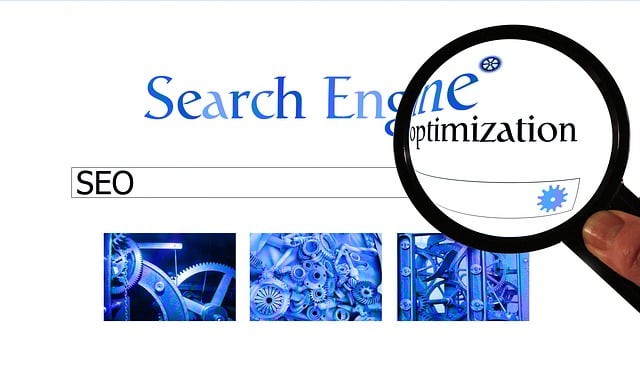Schema Markup is a powerful tool within Technical SEO Training that improves search engine understanding of web content, enhancing visibility through rich snippets and rich results. By providing detailed context for elements like recipes or events, it boosts click-through rates and user engagement, crucial for establishing website authority. Effective implementation requires consistent, concise markup, regular updates, and leveraging Technical SEO Training to stay current with guidelines. Advanced Schema SEO techniques, enabled by training, enable rich data displays, attract users, and drive traffic. Using tools like Schema.org validation and search console reports ensures accuracy and maximizes benefits for a stronger online presence.
Schema SEO is an advanced technique that empowers experts to optimize website content and enhance search engine visibility. This comprehensive guide delves into the intricacies of Schema Markup, offering a technical SEO training for professionals aiming to elevate their skills. We explore various schema types, their benefits, and a detailed step-by-step implementation process. Learn best practices, advanced techniques, and effective measurement strategies to master Schema SEO, unlocking new levels of online success in today’s competitive digital landscape.
Understanding Schema Markup: The Foundation of Technical SEO

Schema Markup is a powerful tool that forms the foundation of technical SEO, enabling search engines to understand and interpret web content more effectively. It’s a structured data language that provides additional context to your website’s content, making it easier for search engine crawlers to grasp the meaning and intent behind your pages. By using Schema, you’re essentially translating human-written content into a machine-readable format, which is crucial in today’s digital landscape where search engines are increasingly reliant on semantic understanding.
Technical SEO Training often emphasizes Schema Markup as a core component because it directly impacts how search results are displayed and ranked. Correctly implemented Schema can enhance your website’s visibility by enriching snippets, encouraging rich results, and even leading to featured snippets. This, in turn, increases click-through rates and user engagement, which are key factors in establishing your site’s authority and relevance.
Types of Schema Data and Their Benefits

Schema data, a powerful tool for enhancing search engine understanding, comes in various forms, each offering unique benefits to websites and their users. One of the most common types is structured data markup, which provides detailed information about specific elements on a page. For instance, listing ingredients in a recipe or detailing an event’s date, time, and location improves accessibility and can lead to enhanced search results, like rich snippets.
The benefits extend to Technical SEO Training as well. By implementing Schema data effectively, experts can optimize websites for voice searches, improve click-through rates, and boost overall visibility on search engine result pages (SERPs). It allows search engines to index content more accurately, resulting in better user experiences and increased traffic, which are vital aspects of successful online presence.
Implementing Schema Markup: A Step-by-Step Guide for Experts

Best Practices for Optimizing Schema for Search Engines

To ensure optimal performance in search engine results, implementing schema markup effectively is paramount. Schema SEO, a powerful tool for enhancing visibility, involves structured data that provides search engines with context to better understand your content. When embarking on this journey, several best practices should be embraced.
Firstly, consistency is key; ensure all relevant pages utilize the same schema type and properties to maintain coherence. Additionally, keep the markup concise and accurate, avoiding unnecessary complexities. Regularly updating schema data, especially for dynamic websites, is crucial as search engines may rely on this information to index your site accurately. Leveraging Technical SEO Training can aid in identifying areas for improvement and staying abreast of evolving schema guidelines.
Advanced Techniques to Enhance Schema SEO Performance

In the realm of Schema SEO for experts, advanced techniques play a pivotal role in enhancing performance and boosting search engine optimization (SEO) strategies. One such technique is the strategic implementation of structured data markup, which goes beyond the basic schema types. By utilizing rich snippets and enhanced data types, experts can provide search engines with more detailed information about their content, thereby improving click-through rates (CTRs). For instance, integrating schema markup for events, products, or recipes allows search engines to display rich results with ratings, prices, and event details, attracting users’ attention.
Furthermore, Technical SEO Training becomes an indispensable tool for experts aiming to refine their Schema SEO. This training equips professionals with the knowledge to navigate complex schema challenges, ensuring proper data interpretation by search engine algorithms. Through hands-on workshops and advanced tutorials, experts can learn to optimize schema markup for specific industries, handle schema updates, and troubleshoot common issues. By integrating these advanced techniques into their workflow, SEO experts can elevate their content’s visibility and deliver a more engaging user experience, ultimately driving better search rankings and increased website traffic.
Measuring Success: Tools for Evaluating Schema Markup Effectiveness

Measuring Success: Tools for Evaluating Schema Markup Effectiveness
In the realm of Schema SEO, understanding the impact and effectiveness of your markup implementation is crucial. This involves a strategic approach to evaluating how well your structured data is performing in search engine results pages (SERPs). By utilizing advanced tools designed for Technical SEO Training, professionals can gain valuable insights into the visibility and click-through rates of marked-up content. These tools offer a window into the intricate relationship between schema markup and user engagement, enabling experts to make data-driven adjustments.
Through comprehensive analytics, you can identify which types of structured data drive the most traffic and conversions, optimizing your efforts accordingly. Regular audits using Schema.org validation tools and search console reports help pinpoint issues or errors in markup, ensuring accuracy and maximizing the benefits of Schema SEO for a vibrant online presence.
